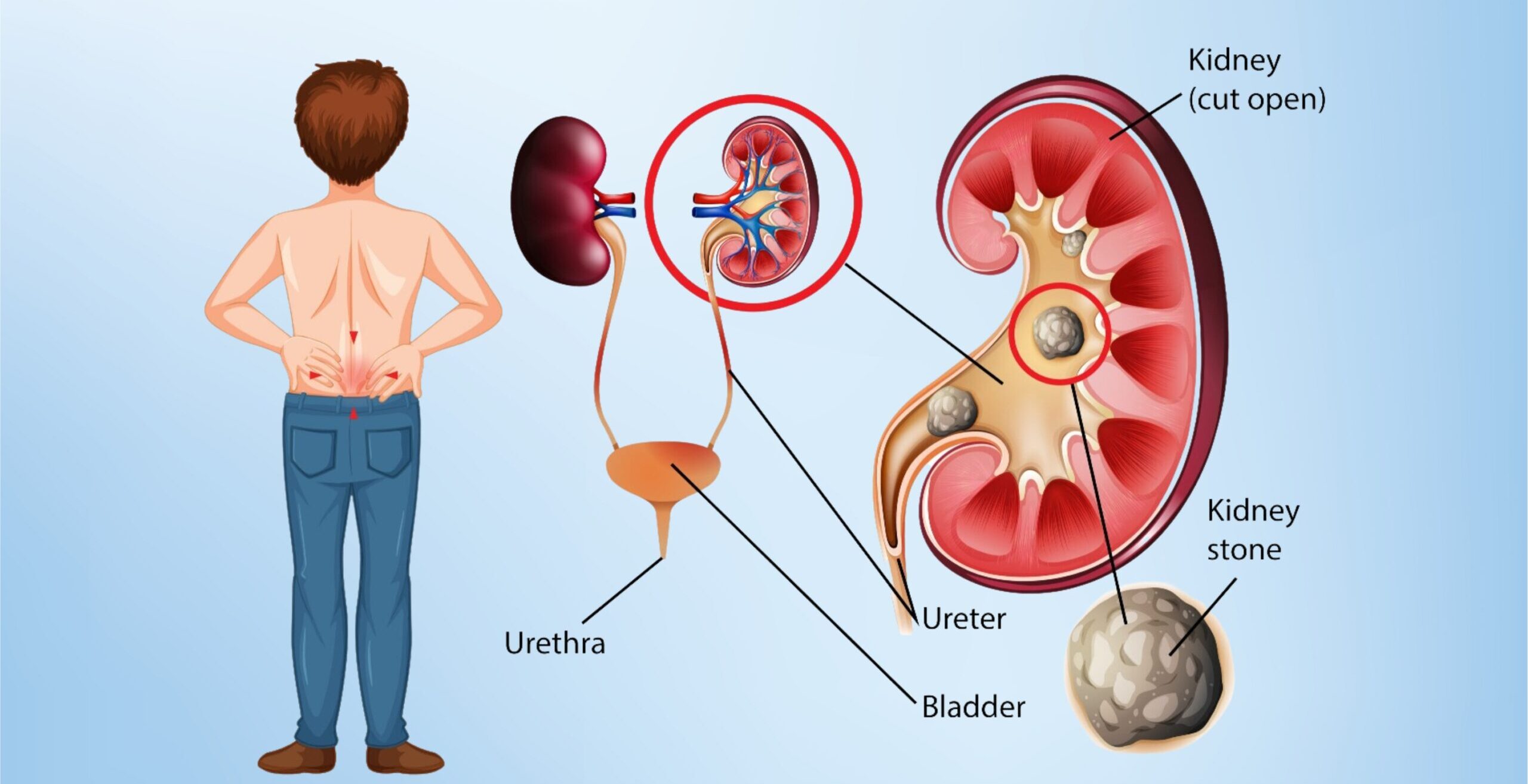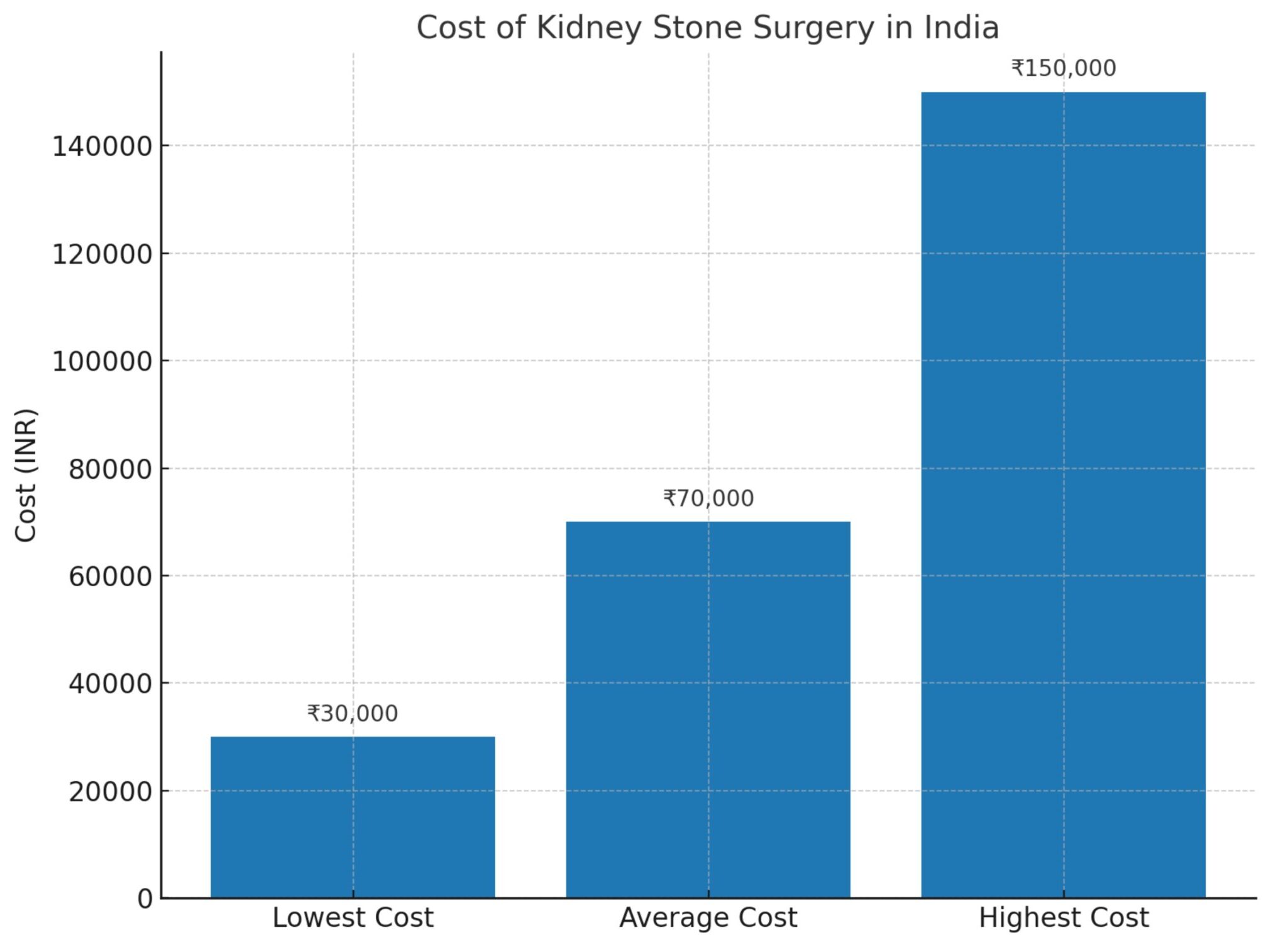Laser surgery for kidney stones, also known as laser lithotripsy, is an effective treatment for kidney stones measuring 1 cm and above. Laser treatment is a minimally invasive procedure that ensures quick recovery and return to regular activities within a short period. To treat painful kidney stones through laser treatment, you can consult highly experienced urologists at HeptaCare Health. Fill in the below form to book your appointment.
Happy Patients
Disease
Hospitals
Cities
Kidney stone laser treatment, also known as lithotripsy or laser lithotripsy, is a minimally invasive procedure used to break down kidney stones into smaller fragments. The broken pieces are then easily passed out of the body through urine.
During kidney stone laser treatment, a specialized instrument called a ureteroscope is inserted into the urinary tract. Then, a laser fiber is passed through the ureteroscope to deliver focused energy to the stone, breaking it into tiny pieces. These small pieces are then expelled from the body, usually without the need for surgery. Kidney stone treatment is preferred for its effectiveness and comparatively lesser risks than traditional surgical approaches.
No external incisions are involved in kidney stone laser surgery. This reduces the risk of complications and infections. Urologists highly seek laser treatment due to its precision which allows for targeted treatment of even large or hard-to-reach kidney stones.

Here are some factors that determine a patient’s eligibility for laser surgery for kidney stones.
Eligibility for kidney stone laser treatment is determined by a healthcare professional, typically general surgeon or a urologist, following a comprehensive evaluation of the patient’s condition.
Before undergoing laser surgery for kidney stones, a thorough diagnosis is crucial to ensure the procedure is both safe and effective. For diagnosis, a urologist typically resorts to the following methods:
A comprehensive diagnostic approach ensures that patients receive the most appropriate and effective care for their condition.
Here are a few steps that can make it easy for you to prepare for kidney stone laser lithotripsy.
Here’s a step-by-step explanation of laser surgery for kidney stones:

Here are a few benefits of laser surgery for kidney stones that make it a more sought-after treatment than other procedures.
These benefits make laser surgery for kidney stones a highly effective and patient-friendly option for the treatment of kidney stones.
Contact your healthcare provider if you experience persistent pain, fever, difficulty urinating, or other concerning symptoms during your recovery.
The cost of laser treatment for kidney stones may vary from individual to individual depending on multiple factors. Typically, the factors that can influence the cost of your laser kidney stone surgery cost are:
Insurance coverage for laser treatment for kidney stones can vary depending on the patient’s insurance plan and provider. Generally, private health insurance plans may offer coverage for laser lithotripsy as a medical necessity.
Medicare, the federal health insurance program for individuals aged 65 and older, may also provide coverage for eligible beneficiaries, typically covering a significant portion of the costs associated with the procedure.


Based on 7721 Recommendations | Rated 4.68 Out of 5
Happy Patients
Clinics
Cities
Surgeries
Doctors
Hospitals
Getting an accurate diagnosis can be one of the most impactful experiences that you can have.

cure with care
Copyright © 2025. All rights reserved.
Consult with our expert surgeon for more than 50+ diseases
Happy Patients
Hospitals
Cities